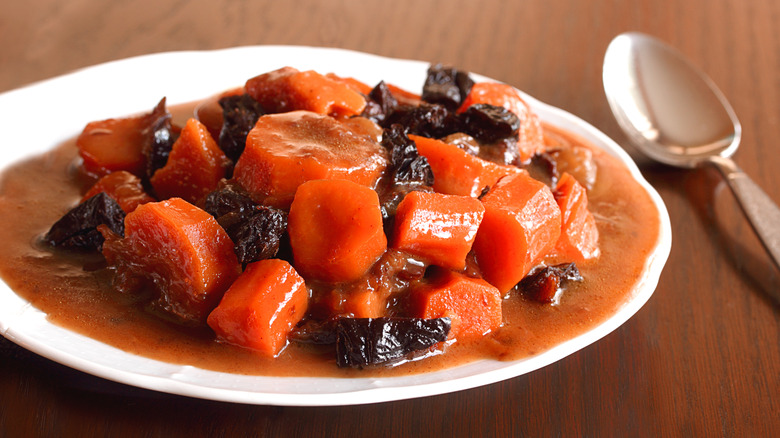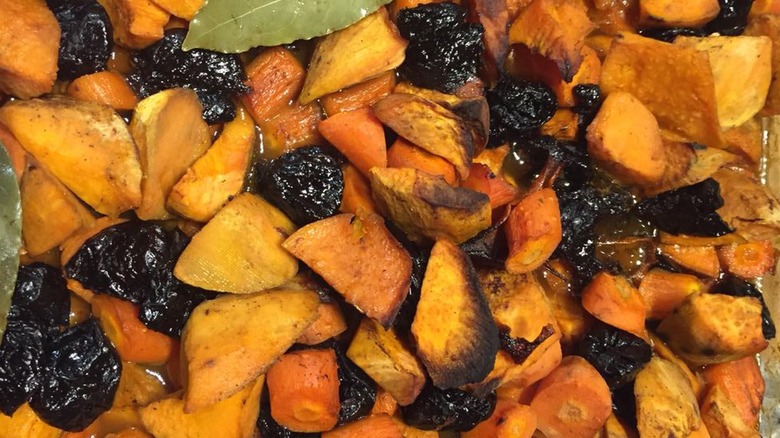The Sweet Way Carrots Are Prepared During Rosh Hashanah
The beginning of the Jewish new year, Rosh Hashanah, celebrates the creation of the world and is a time for introspection and subsequently starting the year with a clean slate. Like in many other cultures, food plays a significant role in the religious holiday. Feasts are attended by family and friends observing the occasion and sweet fare, in particular, holds a symbolic place on the dinner table during the two-day festivities.
One of the sugary staples that is part of a traditional Rosh Hashanah meal is carrot tzimmes (pronounced sim-miss). The dish consists of carrots that have been slowly stewed in fruit juice and other naturally sweet ingredients, turning the hearty veg into dessert-like cuisine. Prunes, onions, sweet potatoes, and soothing fall spices such as ginger and cinnamon often accompany the carrots as they cook. When it's finally presented for the celebration, the aroma of warm comfort food wafts around the table like a welcoming hug from the year to come.
It's not just the sweetness of carrot tzimmes that gives it a place at the feast. Most of the fare served during Rosh Hashanah is representative of something meaningful to the holiday. Similar to why lamb is a classic part of the Easter dinner table, the sustaining veggie dish has a symbolic interpretation.
The significance of sweet carrots at Rosh Hashanah
Just as there is a symbolic reason behind eating latkes at Hanukkah, the dinner table at Rosh Hashanah hosts a wide variety of foods that carry deep meaning in Jewish culinary culture. From challah bread baked into a circle to illustrate eternal life and fish served whole with the head meant to represent "the head of the year," nearly all the cuisine at the feast transmits some kind of spiritual context. Sweet foods hold a special place during the celebration as they are believed to help bring about a satisfying year ahead.
Serving carrot tzimmes embodies this optimistic connotation. For one, meiren is a Yiddish term for carrots, which can also mean to multiply. This holds significance from the Book of Genesis, where Genesis 1:28 has God commanding Adam and Eve to "Be fruitful, and multiply" — a directive that many Jewish families and communities take seriously. Not unlike how some January 1st New Year's food is believed to ring in the new year with a bit of luck, serving hearty, sweet comfort food like carrot tzimmes at a Rosh Hashanah symbolizes being fruitful in the coming year.

